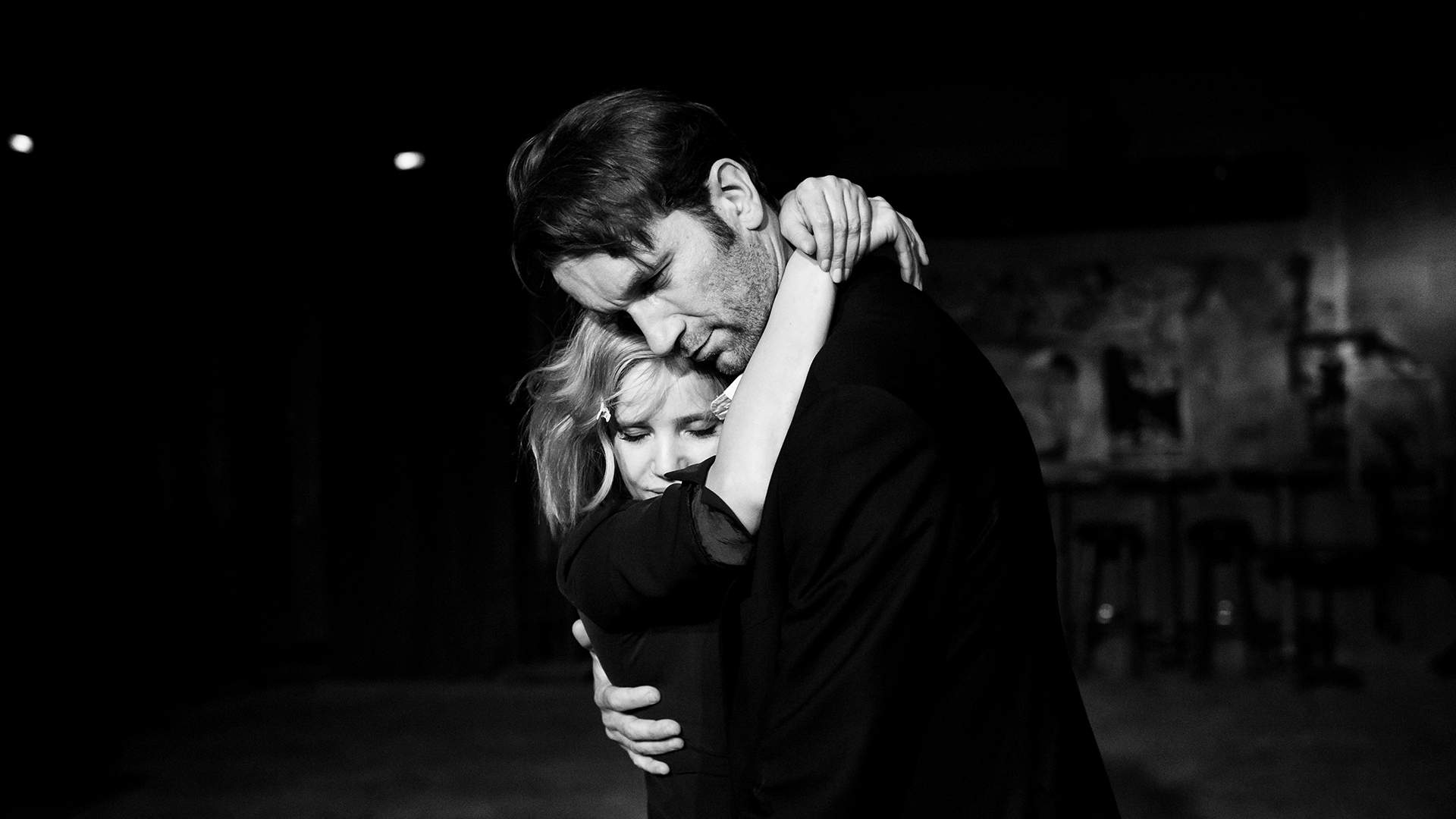Cold War
The latest film from 'Ida' director Pawel Pawlikowski is a melancholic post-war masterpiece.
Overview
UPDATE, August 16, 2020: Cold War is available to stream via SBS On Demand, Google Play, YouTube and iTunes.

"I knocked, I cried; she wouldn't open up," sing violin and bagpipe-playing musicians in Cold War's very first moments. What apt and evocative words they prove. Set in a decimated Europe as the Second World War gives way to the film's titular period, Pawel Pawlikowski's sweeping, melancholic romance is steeped in a place and a time where deeds, sobs and pleas for help go unnoticed. The writer-director's native Poland might sport a facade of recovery, and charge a folk ensemble with crooning appropriated music to set the requisite tone, but the nation remains an unforgiving master for those that walk its lands. When the movie spends much of its second half in the jazz-soaked bars of the Parisian music scene, it treads through just as complicated terrain.
Meeting during an audition — she sings and confirms that she can dance; he decrees that she has "energy, spirit; she's original" — Cold War's star-crossed lovers navigate a rocky path that unfurls across the 50s and 60s. Music director Wiktor (Tomasz Kot) is soon desperate to leave the country, an action that's as simple as walking across the border while touring near East Berlin. As rumours about her background demonstrate, the youthful Zula (Joanna Kulig) is not one to comfortably submit to anyone or anything. Other than the strength of their feelings, nothing is easy about Zula and Wiktor's relationship. Nothing is easy, period. The movie jumps forward in fits and spurts, and yet three things stay constant: music that adds a haunting soundtrack to both hopeful and bleak days; unease that chips away at even the happiest of times; and Zula and Wiktor, who forever orbit around each other.
Cold War may be a film where the yearnings of the many go unnoticed by the cruel, harsh world, but the same never applies to the deep-seeded bond between its protagonists. Wiktor notices every sentiment and sensation that courses through Zula's veins, and vice versa. Yet their love can't penetrate the fraught, uncaring environment they're living within. There's a resigned air to the movie, one mirrored by the changing tones and moods of the song that Zula's always singing. Pawlikowski may have based the picture's narrative on the most personal of stories — that of his parents, who share the characters' names and earn the film's dedication — but his gaze is clear. The winner of the Best Director award at this year's Cannes Film Festival is resolute in depicting the oppressive turbulence of the era, and in relaying the crushing vagaries of life in general.
Making his first movie since the similarly exceptional Oscar-winner Ida, Pawlikowski retains his penchant for crisp, black-and-white visuals, all constrained within tight 4:3 frames. The boxed-in shape draws the eye just as Zula and Wiktor are repeatedly drawn together, and the smaller space makes every detail count. As sumptuously shot by cinematographer Łukasz Żal, the result is imagery so dense, luminous and intoxicating that it seems as if the filmmaker is painting every possible emotion across the screen. Visions of cavernous churches and busy clubs prove pregnant with feeling, and the expressions adorning Kulig and Kot's faces even more so. Where Cold War is at its aesthetic best, however, is when the camera floats and wanders and keeps pace with the picture's main players. A fluid late dance scene where Zula moves with abandon to 'Rock Around the Clock', the lens following along with her, is filmmaking at its most enthralling.
It helps that Pawlikowski and his frames clearly adore Kulig and Kot. It helps, too, that the entrancing central pair don't so much invite but demand adoration. Whenever the camera shifts away from either, their absence is instantly felt, although this masterpiece never shifts away for very long. Zula and Wiktor's knocks and cries might largely remain silent, yelled with their eyes rather than their words, however Cold War's devastating lead performances convey the impact of every internalised ache and pain. Indeed, in a bittersweet finale that sears itself into memory like few celluloid moments ever manage, Kulig and Kot unburden a world of insights about simply trying to survive. And they do so while uttering the scantest — yet still most utterly perfect — of lines.





